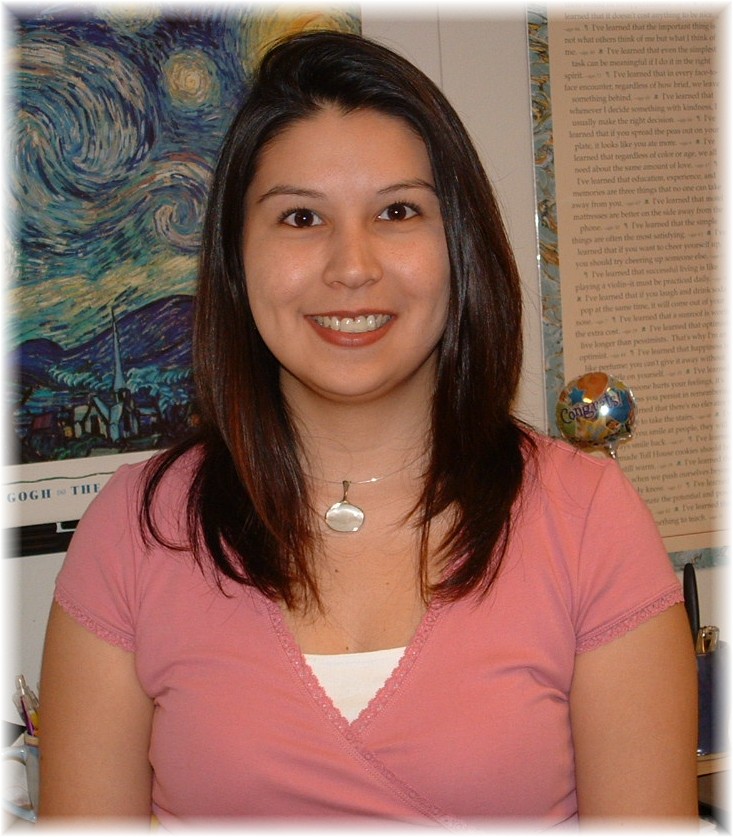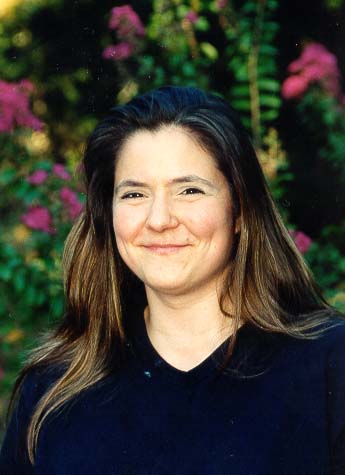Latest News
Where are they now?
Pediatric & Health Psychology Laboratory Alumni
 |
Melissa Carpentier, Ph.D. I am a proud former member of the Mullins Lab. During my time at OSU, I focused on examining the utility of cognitive appraisal mechanisms in predicting child and parent adjustment to a variety of chronic illnesses, including diabetes, asthma, and cancer. I completed my internship at the University of Mississippi Medical Center in Jackson, MS, and recently received my doctoral degree from OSU (July, 2007). Currently, I am Assistant Professor of Pediatrics at Indiana University (IU) School of Medicine, with a joint appointment in the IU Simon Cancer Center. Generally speaking, my line of research focuses on examining the developmental trajectory of adjustment among individuals diagnosed with cancer in the formative adolescent years, including the transition into survivorship and young adulthood. Given the centrality of peers and romantic partners in adolescents and young adults lives, I am also interested in how health-protective and health-damaging behaviors are entrenched within close peer and dating relationships among this vulnerable population. Notably, engagement in health-damaging behavior holds important implications for adolescent cancer patients and survivors, given their increased risk for second malignancies in their adult lives. Thus, the overall goal of my line of research is focused on identifying predictors, mediators, and moderators of maladjustment, in the hopes of ultimately informing the development of behavioral interventions designed to target adolescents with cancer and adolescent cancer survivors who are at risk for social difficulties, compromised quality of life, and engagement in health-damaging behaviors. |
|
 |
Jill (Van Pelt) Isenberg , Ph.D. completed her Ph.D. with the Mullins' lab in December 2005. She completed her pre-doctoral internship at the University of Minnesota Medical Center. She then completed a two-year post-doctoral fellowship in the Division of Pediatric Clinical Neuroscience at the University of Minnesota Medical Center. Currently, Dr. Isenberg is working as a pediatric neuropyschologist in the Department of Psychology at Saint Louis Children's Hosptial. Her clinical and research responsibilities involve serving the hematology-oncology teams, including working with children who have brain tumors, who have undergone bone marrow transplant, and/or who are experiencing cognitive late-effects as a result of cancer treatment. | |
 |
Misty Boyd, Ph.D. received her doctorate from Oklahoma State University in 2003. While a student at Oklahoma State University, she was mentored by Dr. Larry Mullins and worked in his lab. She was involved in research examining family adjustment to developmental disabilities and pediatric chronic illness, as well as the role of spirituality in adjustment to chronic illness in young adults. Dr. Boyd also completed practicum for several years at the Center on Child Abuse and Neglect, where her activities included providing treatment to families and researching treatment effectiveness in families where physical abuse occurred. She was a LEND Leadership Fellow in 2000-2001. Dr. Boyd completed her internship through the University of Tennessee Health Sciences Center in Memphis, Tennessee, in 2002-2003. These experiences strengthened Dr. Boyds desire to work with underserved populations, leading her to her current position as a Clinical Psychologist with Cherokee Nation Behavioral Health Services in Tahlequah, Oklahoma. She provides clinical services to American Indian children, adolescents, families, and adults. She also supervises both masters and predoctoral practicum students and serves as a consultant for other clinicians in the department to develop and improve services for children and adolescents. Additionally, Dr. Boyd serves in this capacity on several committees within the tribe to advise other departments and leaders on mental health issues affecting children and families. Current research activities include working with a multidisciplinary team to develop and conduct outcome research for a culturally-sensitive intervention for American Indian adolescents struggling with both substance abuse and post-traumatic stress disorder (PTSD). She also chairs a workgroup within Cherokee Nation focusing on assessing the prevalence and consequences of substance use in communities throughout northeastern Oklahoma and the effectiveness of prevention strategies in reducing substance use and its consequences across the lifespan. | |
 |
Ahna Hoff Pai, Ph.D. is currently an Assistant Professor at Cincinnati Childrens Hospital Medical Center and University of Cincinnati College of Medicine. She received her B.S. in Psychology from the Colorado State University, her M.A. in Clinical Psychology at the University of Colorado and her Ph.D. in Clinical Child Psychology focusing on Pediatric Psychology from Oklahoma State University (2003). A poster based on her dissertation received the student poster award from the Society of Pediatric Psychology at the 2003 American Psychological Association convention. After completing her clinical internship at Columbus Childrens Hospital, Dr. Pai pursued a two year postdoctoral fellowship with Dr. Dennis Drotar at Rainbow Babies and Childrens Hospital and Case Western Reserve University Medical School. Following her fellowship, she conducted research in the Division of Oncology at Childrens Hospital of Philadelphia with Dr. Anne Kazak. Dr. Pai joined the Center for the Promotion of Adherence and Self-Management at Cincinnati Childrens Hospital Medical Center in August, 2007. Her research interests are centered on the development and dissemination of interventions designed to increase adherence to medical regimens in pediatric populations. Specifically, she is interested in systemic interventions targeting those components of family functioning that influence adherence and self-management behaviors in transplant populations. She is also interested in the construct of illness uncertainty and managing illness uncertainty as a means of decreasing caregiver and child psychological distress. | |
 |
Bernard Fuemmeler, Ph.D., M.P.H., earned his doctoral degree in clinical psychology from Oklahoma State University in 2001 and completed a clinical internship and one year post-doctoral fellowship at the Medical University of South Carolina. He then went on to a 3-year fellowship sponsored by the National Cancer Institute in preventive oncology. During the fellowship he earned a masters degree in public health from Harvard University in 2003 and subsequently worked in the NCIs Health Promotion Research Branch. Currently he is on faculty at Duke University in the Department of Community and Family Medicine. He conducts research on both cancer survivorship and cancer prevention. In the area of survivorship, Dr. Fuemmelers research has focused on psychological adjustment of cancer survivors and their families as well as secondary health-risk prevention. In the area of cancer prevention, Dr. Fuemmeler conducts research on the bio-psycho-social correlates related to modifiable cancer risk factors (e.g., smoking, physical activity, and obesity) from a life-course perspective. He is particularly interested in identifying salient bio-psycho-social factors in the transition from adolescence to young adulthood that would inform health promotion and prevention intervention science. His research is investigating parental and family factors that influence obesity and physical activity during youth, and child psychiatric conditions that have the potential to influence smoking risk. Dr. Fuemmeler is also working with collaborators from multiple disciplines at Duke University investigating candidate genes that regulate dopamine and serotonin in the brain in order to identify the potential relation that these genes have with obesity, physical activity, and smoking. To read more view his web page here (http://www.duke.edu/~fuemm001). | |






